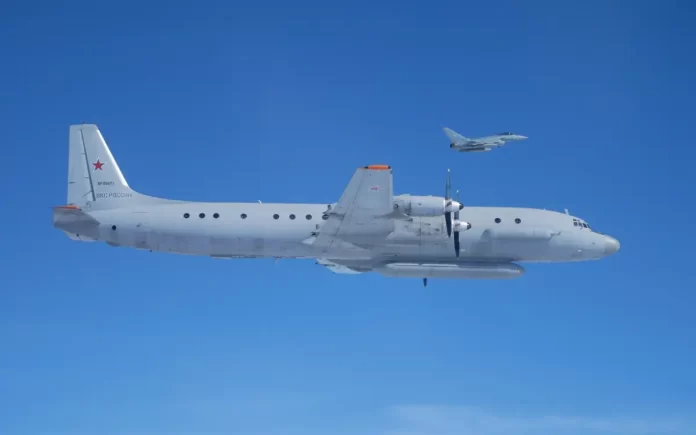Berlin: On April 6, the German Air Force leaped into action, scrambling fighter jets to intercept a Russian II-20 aircraft soaring over the Baltic Sea. The urgency of this maneuver stemmed from the glaring absence of a transponder on the Russian aircraft, a crucial instrument vital for ensuring safe air traffic by rendering the aircraft visible to others in the bustling skies.
Deployed from a base in Lielvarde, a quaint town just 50 kilometers southeast of Riga, Latvia, the swift response of the German jets highlights the acute vigilance maintained by NATO members amidst Russia’s persistent military assertiveness.
This incident stands as a poignant reminder, not merely an isolated occurrence, but a fragment of a series of unsettling encounters that have sent ripples of apprehension through Western nations, particularly those perched on NATO’s eastern flank.
Also Read: Meta Tightens Guidelines on Altered Media, Including Deepfakes, Ahead of US Elections
Also Read: Khabarovsk on Alert: Emergency Declared Amidst Radiation Scare
A Sequence of Provocative Incidents
The specter of Russia’s brazen invasion of Ukraine casts a long shadow, with its reverberations extending into the airspace of NATO member states.
Such confrontations have become increasingly recurrent over the past couple of years, placing the alliance on heightened alert. In response, NATO has bolstered its presence in the Eastern European member states, deploying supplementary aircraft, ships, and troops to safeguard the borders against potential aggressions.
In a parallel development, Poland found itself entangled in its own aerial incidents. In March, the nation scrambled fighter jets to trail a Russian missile that breached its airspace.
Also Read: NASA’s Hubble Telescope Delivers Jaw-Dropping Image of Galaxies in Cosmic Collision
Remarkably, the missile was not engaged, as it was anticipated to return to Ukrainian territory, underscoring the intricate calculations required in such high-stakes scenarios to avert civilian casualties.
Moreover, Polish and allied forces were compelled to react swiftly to a significant Russian missile attack on Ukraine, spotlighting the volatile security dynamics prevailing in the region. Adding to the roster of interceptions, in February, the French Air Force intercepted a Russian II-20 reconnaissance aircraft near Estonia.
Also Read: Ukraine’s Plea for Aid: Zelensky Warns of Defeat Without US Support
Prior to that, in January, the German Air Force escorted a Russian military plane away from German airspace after it was detected flying in proximity to the island of Rugen without transmitting a transponder signal.



